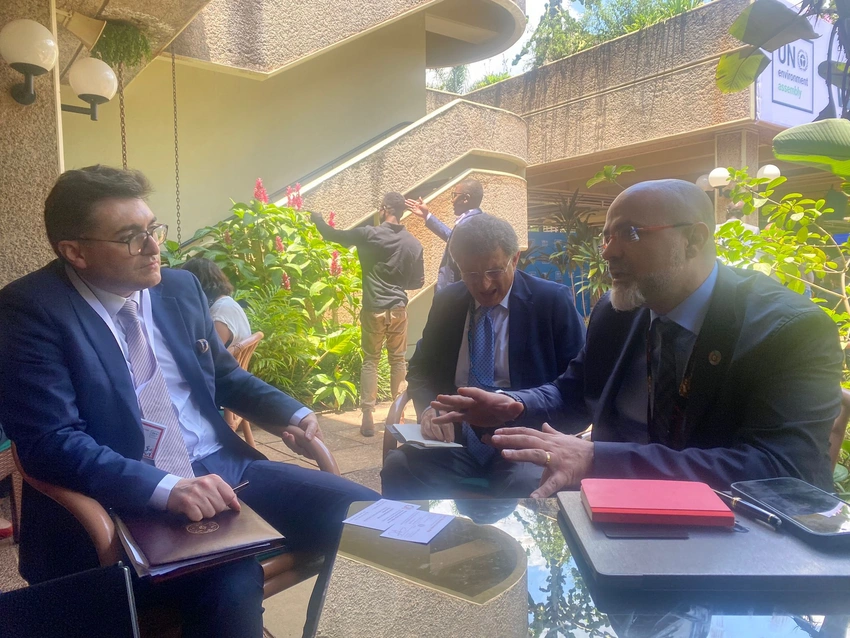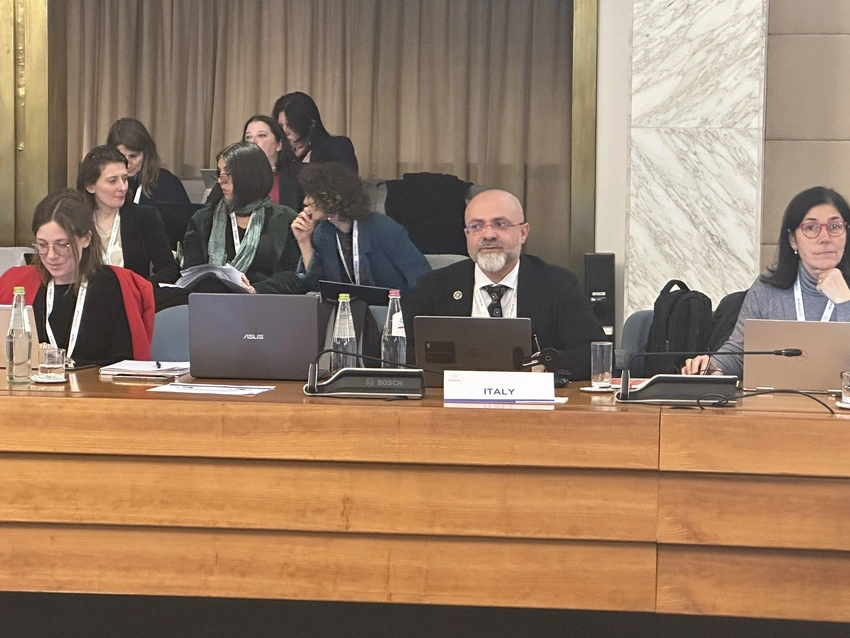Italy’s special envoy: COP29 in Baku - course for inclusivity and ambitious solutions
- 07 March, 2024
- 07:12

The 29th session of the Conference of the Parties to the UN Framework Convention on Climate Change (COP29) promises to be an event characterized by inclusivity, civil society participation, engagement of minorities, and youth involvement, Italy’s special envoy for climate change, Professor Francesco Corvaro said in an interview with Report.
“Having met with the COP29 team in Nairobi, I anticipate a COP29 characterized by inclusivity, civil society participation, engagement of minorities, and youth involvement. I don't think it will be an easy COP, much like the one in Dubai was not; however, having witnessed the determination of the team selected by Azerbaijan, I believe we can aim for ambitious outcomes that build upon what emerged in COP28 and go even further with even more significant ambitions, always keeping in mind that a sustainable future can only be achieved if we start from a sustainable present in environmental, social, and economic terms. Beyond this, there is a risk of delving into ideological positions that only contribute to generating international divisions, detracting from the only chance we have to tackle the climate challenge: international cooperation,” he said.

“COP29, building on the achievements of COP28 and looking ahead to COP30 in Brazil, will need to follow up on what has already been agreed upon in Dubai with a particular focus on climate finance. There has been ongoing discussion for some time about the need to reform climate finance so that, while maintaining extreme transparency, it can become increasingly accessible to developing countries in need. Today, the system is too bureaucratic and not in line with the hyper-fast world around us. There is a need to provide immediate response to the needs of those fighting against the climate crisis (think of the need for quick access to the Loss & Damage fund) or those pursuing sustainable development paths for their economies and relying on accessing climate funds. Additionally, crucial issues related to climate change such as food security, energy transition, civil society and private sector participation, youth engagement, and climate literacy and education need to be addressed,” the professor added.
“The role that the COP has in all of this is to increase awareness and keep the attention of the public opinion alive and, as happened in COP28, to chart the path to undertake all necessary measures to limit climate change and minimize the negative effects that will persist for the next years. Therefore, in addition to considering all the necessary measures to counteract climate change, it must also indicate those that are needed to prepare the territories to absorb the impact of adverse and violent weather events that will inevitably strike us in the coming years,” he noted.

“Assessing the importance of the COP is by no means simple. We must explain how a COP is structured and how decisions are reached. During a COP session, we sit at the same table with over 190 countries with completely different cultures and needs, and often diametrically opposed views. Every decision must be made unanimously and encompass the concerns of all COP members. This is the true challenge of every COP: reaching a shared decision among peoples living in vastly different realities with equally difficult-to-reconcile perspectives. From this point of view, the outcome of COP28 should be interpreted as a major achievement since, for the first time, highlights the need to gradually phase out fossil fuels,” the professor said.

“The impact on the economies of countries due to climate change is growing year by year, and lately, even developed countries like Italy must deal with the damages caused by increasingly violent weather events connected to the changing climate. According to the World Meteorological Organization, since 1970, losses due to weather disasters have increased sevenfold. According to the authors of the study the losses are due to global warming as well as to other phenomena such as population growth, urban migration, and improvement in disaster reporting. The results show that 185 extreme weather events caused by the climate crisis between 2000 and 2019 have cost the world $2.8 trillion.”
